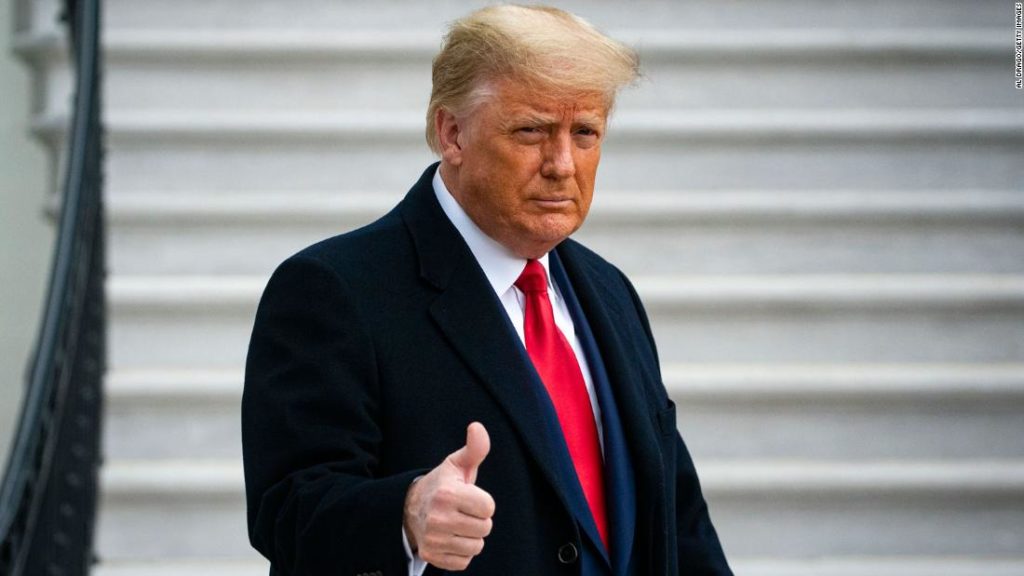
“Unfortunately,” the President wrote in his veto message to Congress, “the Act fails to include critical national security measures, includes provisions that fail to respect our veterans and our military’s history, and contradicts efforts by my Administration to put America first in our national security and foreign policy actions. It is a ‘gift’ to China and Russia.”
Trump’s veto sparked an immediate rebuke from GOP Sen. Jim Inhofe, the chairman of the Senate Armed Services Committee, who said that the defense bill must become law.
The Oklahoma Republican went on to say that the defense bill “cements all the remarkable gains our military has made thanks to @realDonaldTrump’s leadership,” adding, “I hope all of my colleagues in Congress will join me in making sure our troops have the resources and equipment they need to defend this nation.”
The bill includes provisions to limit how much money Trump can move around for his border wall and another that would require the military to rename bases that were named after figures from the Confederacy.
It’s unclear if Republicans will again defy the President and vote to override his veto. Multiple House lawmakers, including the top Democrat and Republican on the House Armed Services Committee, however, previously said they will cut their holidays short for Congress to return to Washington to override a veto if necessary. A new vote has yet to be scheduled.
The $740 billion bill known as the National Defense Authorization Act also includes pay raises for America’s soldiers, modernizations for equipment and provisions to require more scrutiny before troops are withdrawn from Germany or Afghanistan.
Trump singled out Section 230 in his message, calling it a “very dangerous national security risk.”
He also went after the requirements for changing the names of military installations named after Confederate soldiers and slave owners.
“Over the course of United States history, these locations have taken on significance to the American story and those who have helped write it that far transcends their namesakes,” Trump said. “My Administration respects the legacy of the millions of American servicemen and women who have served with honor at these military bases, and who, from these locations, have fought, bled, and died for their country. From these facilities, we have won two World Wars. I have been clear in my opposition to politically motivated attempts like this to wash away history and to dishonor the immense progress our country has fought for in realizing our founding principles,” the message says.
The President also said the act “directly contradict(s) my Administration’s foreign policy, particularly my efforts to bring our troops home. I oppose endless wars, as does the American public.”
While Trump’s previous veto threats drew swift and sharp bipartisan pushback from lawmakers who have argued that he is using leverage over the troops to settle personal scores, he has received vocal support from some allies.
Sen. Lindsey Graham, a South Carolina Republican and chairman of the Senate Judiciary Committee, had backed the President on his push to remove Section 230.
“I support President @realDonaldTrump’s insistence Section 230 repeal be part of the defense authorization bill,” he wrote in a three-tweet thread. “Big Tech is the only industry in America that cannot be sued for their business practices and are not meaningfully regulated. This must come to an end.”
The conservative House Freedom Caucus announced ahead of the House vote that its members will side with Trump in his opposition to the legislation and was pressuring other GOP members to side with Trump as well.
This story has been updated with additional developments.
Lauren Fox contributed to this story.
You may also like
-
UK coronavirus variant has been reported in 86 countries, WHO says
-
NASA technology can help save whale sharks says Australian marine biologist and ECOCEAN founder, Brad Norman
-
California Twentynine Palms: Explosives are missing from the nation’s largest Marine Corps base and an investigation is underway
-
Trump unhappy with his impeachment attorney’s performance, sources say
-
Lunar New Year 2021: Ushering in the Year of the Ox

